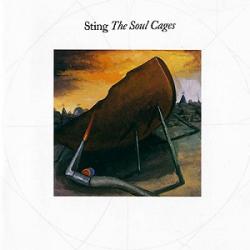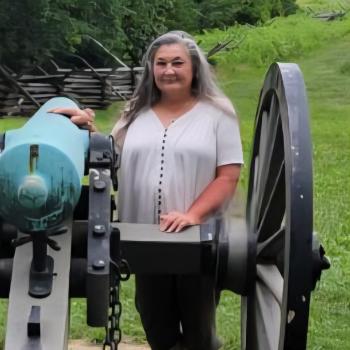Patheos Editor's Note: A controversy recently erupted over Kathy Boudin, a former member of the radical Weather Underground group who participated in an armored truck robbery in 1981 that left three people dead. (Go here for context.) Boudin was paroled in 2003 and now teaches at Columbia University's School of Social Work on the challenges confronting the families of incarcerated and former prisoners attempting to reenter society. Many, including some writers here at Patheos, have been critical of Columbia's decision to hire Boudin, yet Columbia and Boudin herself have remained largely silent.
One of our intrepid writers, Erik Campano, uncovered a piece Boudin wrote about her remorse just prior to her release from prison. Republishing this essay (it originally appeared in the Fellowship of Reconciliation magazine, and we are grateful to FOR and Boudin for their permission) is not intended to take a position on the issue, but to bring into view a fuller picture on Kathy Boudin and her perspective on her crimes.
This may not be published at other sites in whole or nearly whole without explicit permission.
Making a Different Way of Life
Author's Note: I wrote this article shortly before I left prison. Remembrance and reconciliation remain a central part of my life.—Kathy Boudin
Twenty-two years ago I was arrested after a horrific robbery of a Brinks truck in Rockland County, New York, that left three people dead, others injured, and enormous suffering among families, community, and police. I was propelled into a life that would forever be defined by remorse. At my sentencing, I turned and apologized to the families of all of the victims for their pain and loss. But remorse is not a moment or a single act: it is timeless, connecting the past, the present, and the future. It is a way of life. It's like the skin on your body—something that you wear forever.
Days after my arrest, my mother firmly said to me, "You did something very, very terrible. But you have to go on. You have to learn from it. You have a child; you have to go on." Tears were running down my face. I already knew it was terrible. As many inmates do, I tried to console myself by focusing on the limitations of my role: I didn't shoot or hurt anyone; I was an unarmed passenger waiting in a getaway car more than a mile away from where the robbery was taking place. Later I pled guilty to robbery and to the death of Peter Paige, the Brinks guard killed during the robbery. The judge and the DA called my role secondary and recommended I be released at the end of my twenty-year minimum sentence, providing rehabilitation.
My work in prison has been to go beyond the legal definitions and limited nature of what I did to fully embrace the enormity of my human responsibility: I supported and was part of a robbery that risked and then destroyed human life. I am morally responsible for all the tragic consequences that flowed from that.
Like many prisoners living in the shadow of deaths and destruction from their crimes, I was initially overwhelmed by the totality of suffering. I first faced the reality that I had left my fourteen-month-old child at the babysitter. I had ruptured a most basic human bond, violating a mother's responsibility to protect and care for her baby. In our first visits after a two-month separation, he seemed not to recognize me—his mother, who had breastfed him for a year. I centered my energy on him, helping to find a new family for him, crocheting stuffed animals, filling visits with love. Then there was his moment of recognition, perhaps of acceptance. My awkward efforts to care for this one life, whose trust I had betrayed, nourished my own humanity and was the first step toward repairing the human bonds that I had violated.
New experiences in the present deepen remorse. In the late 1980s, the AIDS epidemic left our prison bereft with weekly deaths, and filled us with fear of death, of the unknown, of each other. In time, we turned to compassion and education, promised each woman who was ill that we would always remember her, made quilts and held memorials. In our new community of support, women who were HIV-positive left behind their shame and pariah status and became leaders in knowledge, courage, and human empathy. I remember after our walk-a-thons, as darkness descended over the prison yard, several hundred of us inmates lined up along pieces of crepe paper formed into a giant AIDS ribbon, wearing our red hats and shirts, standing quietly shoulder-to-shoulder under the stars. We listened to hundreds of names of family members and friends who had died. Then, as the words to our theme song echoed across the yard, "Lean on me, I am your sister..." with tears streaming down our faces, we each raised our lighter toward the sky, promising we would always care for one another. The repeated confrontations with deaths of women—friends, co-workers—highlighted the preciousness of life and made me all the more conscious that I had participated in a robbery that had led to suffering and loss of lives.




